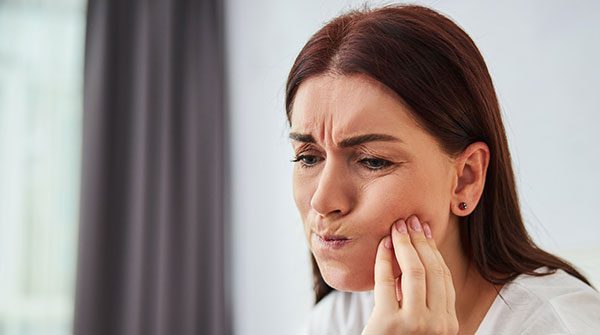Prompt dental care is key to relieving toothaches and associated headaches
We’ve all experienced the discomfort of a headache at some point in our lives. Whether it’s a dull throb or a pounding sensation, headaches can be debilitating and affect our daily activities. While there are various causes of headaches, one surprising culprit that often goes unnoticed is toothaches.
Yes, that’s right! Toothaches can contribute to the onset of headaches, and understanding this connection can help us find relief.
Toothaches occur when there is an underlying issue within our teeth or gums. This can range from tooth decay, gum disease, abscesses, or even teeth grinding. The pain from a toothache often radiates to other parts of the head, including the temples, forehead, and even the back of the neck. This referred pain can lead to the development of headaches, making it challenging to identify the true source of the discomfort.
 Getty Images |
| Related Stories |
| Five ways to keep your smile healthy
|
| A federal dental care program is nothing to smile about
|
| Ultrasound holds promise of accurate, risk-free diagnosis of dental disease
|
One of the primary reasons toothaches cause headaches is due to the shared nerve pathways in our face and head. The trigeminal nerve, the largest cranial nerve responsible for sensation in the face and head, is connected to both the teeth and the head.
When there is inflammation or irritation in the teeth or gums, the trigeminal nerve can transmit pain signals to other parts of the head, triggering a headache. Moreover, the muscle tension that often accompanies toothaches can contribute to the development of headaches.
When we experience dental pain, we may clench our jaw or grind our teeth in response, leading to increased muscle tension in the head and neck region. This tension can radiate and manifest as a headache, further intensifying the discomfort.
It’s essential to address toothaches promptly to alleviate both dental pain and the associated headaches. Seeking dental care from a professional is crucial to identify and treat the underlying cause of the toothache. Dentists can perform a thorough examination, conduct X-rays if necessary, and provide appropriate treatment options tailored to your needs.
In the meantime, there are a few home remedies that may help alleviate the discomfort caused by toothaches and subsequent headaches:
- Rinse your mouth with warm saltwater to help reduce inflammation and provide temporary relief.
- Apply a cold compress to the affected area can also help numb the area and reduce pain.
- Over-the-counter pain relievers may offer temporary relief, but it’s essential to consult a dentist for a long-term solution.
- Maintaining good oral hygiene practices, such as brushing twice daily, flossing, and regular dental check-ups, can go a long way in preventing toothaches and their associated headaches.
- Addressing dental issues promptly can help reduce the risk of developing further complications and the resulting headaches.
So, the next time you find yourself battling a persistent headache, it might be worth considering whether a toothache could be the underlying cause. Seeking dental care and addressing toothaches promptly not only provides relief from dental pain but can also help alleviate those nagging headaches, allowing you to get back to enjoying life pain-free.
Remember, a healthy smile contributes to overall well-being, and taking care of your teeth is essential for a headache-free life!
| Troy Media staff
The opinions expressed by our columnists and contributors are theirs alone and do not inherently or expressly reflect the views of our publication.
© Troy Media
Troy Media is an editorial content provider to media outlets and its own hosted community news outlets across Canada.

